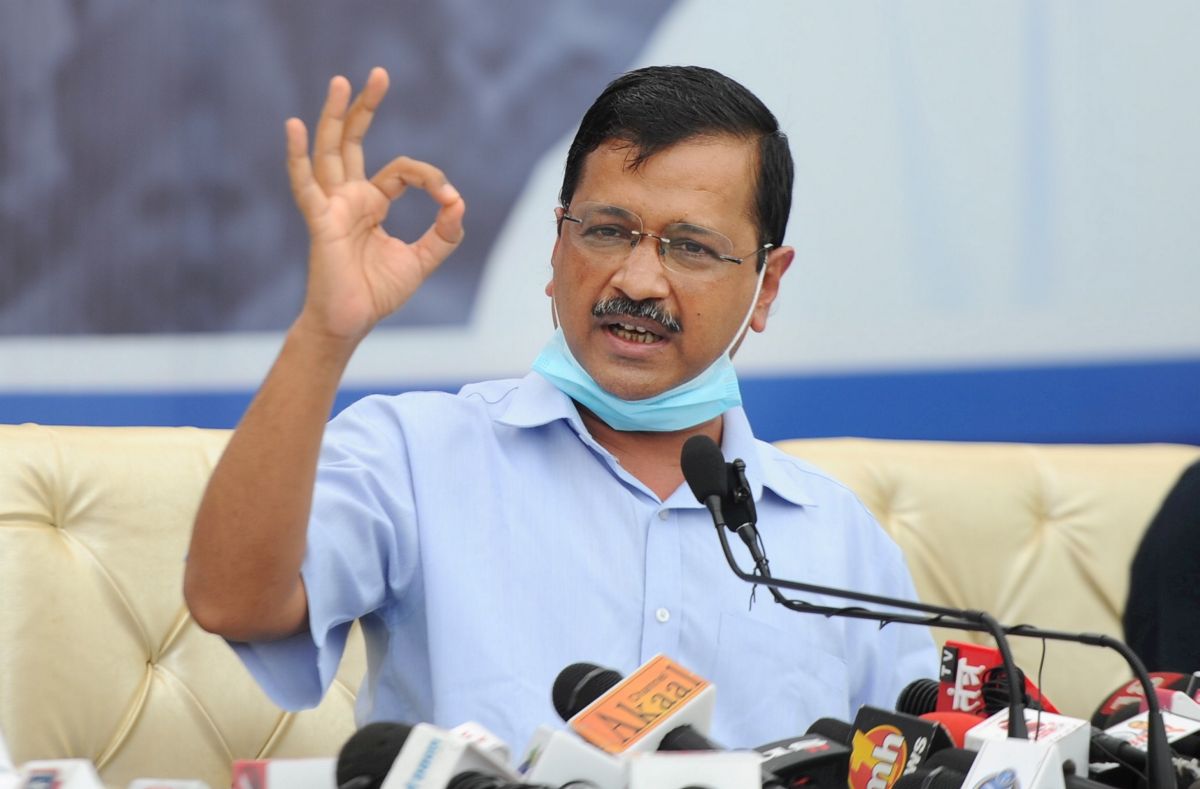Meet the Leader of the Common Man: Arvind Kejriwal
Childhood and School:
He was born in Siwani, a small town in Haryana, India, on August 16, 1968. His father was an electrical engineer named Gobind Ram Kejriwal and his mother was a housewife named Gita Devi. From a very young age, Arvind Kejriwal showed that he was hardworking and brilliant. He went to Hisar’s Campus School and later got his degree in mechanical engineering from the prestigious Indian Institute of Technology (IIT) Kharagpur in 1989.
In addition to his academic work, Arvind Kejriwal actively participated in several social service endeavors. He worked on several social projects while studying at IIT, which laid the foundation for his future participation in Indian politics.

Career Beginnings and Supporting Social Causes:
Kejriwal started working for Tata Steel in Jamshedpur after getting his engineering degree. Eventually, his desire to do social work took priority over his corporate job. After doing well in the civil service exam, he quit Tata Steel and joined the Indian Revenue Service (IRS) in 1995. Although Arvind Kejriwal was working for the IRS, he was appointed to the Income Tax department, where he continued to push for accountability and transparency.
Throughout his civil service, he did not give up fighting corruption. Kejriwal started the Parivartan NGO in 1999 to solve people’s complaints about public services and unveil corruption. The NGO’s success in providing actual solutions to problems like corruption in the Public Distribution System (PDS) and the income tax system made Kejriwal prominent.
Jan Lokpal Movement and India Against Corruption:
Joining the India Against Corruption (IAC) movement helped Arvind Kejriwal become well-known across the country. He worked with social activist Anna Hazare in 2011 to campaign for the implementation of the Jan Lokpal Bill, which created a separate anti-corruption ombudsman.
The movement inspired millions of people in India, and there were protests and public support all over the country. As a strategic organizer and spokesperson, Arvind Kejriwal played a key role in making the movement’s goals clear and getting people to support it. People wanted systemic political change even more because the government refused to pass a strong Lokpal Bill, even though there was a huge public outcry against it.
The Foundation of the Aam Aadmi Party:
Since there was no significant progress in legislative reforms, Kejriwal and his supporters chose to take a direct approach to political change. His goal when he started the Aam Aadmi Party (AAP) in November 2012 was to eliminate corruption and support good governance. “Aam Aadmi,” which means “Common Man,” resonated with the masses because it showed that it cared about the problems of commoners.
Traditional politicians were skeptical when the AAP got involved in politics, but voters liked Kejriwal’s straightforward approach and focus on transparency. The AAP party made a big splash in its first election for the Delhi Legislative Assembly in 2013. It won 28 of the 70 seats with the help of the Indian National Congress, making Kejriwal the Chief Minister of Delhi on December 28, 2013.
First Term as Chief Minister:
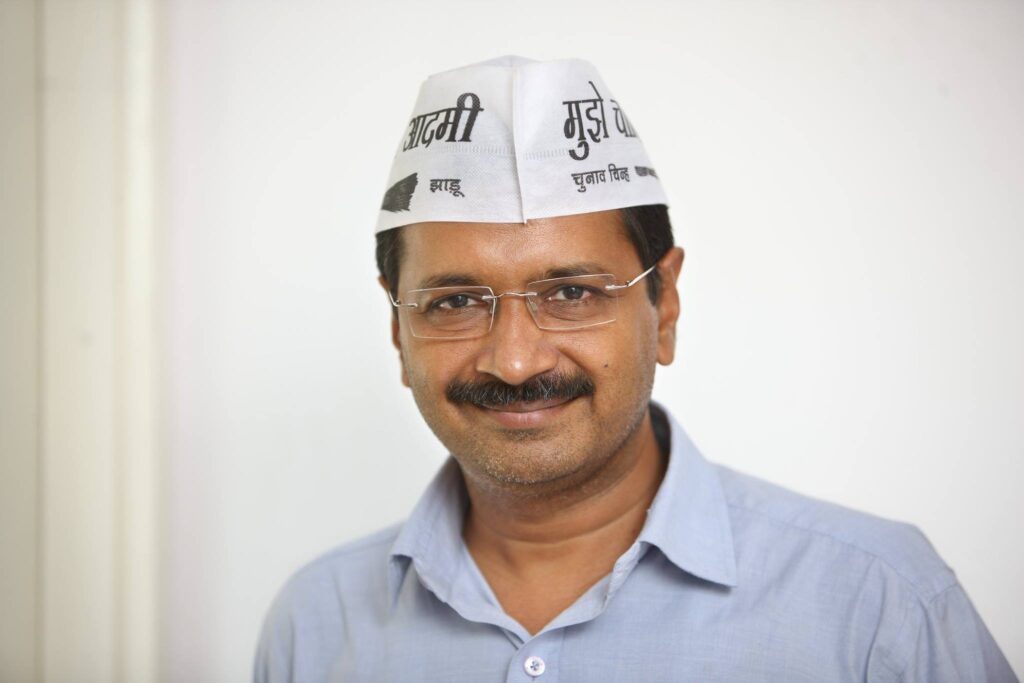
Short but eventful was Arvind Kejriwal’s first time as Chief Minister. His government focused on fulfilling the promises it made during the campaign, like lowering electricity tariffs and giving people free water. However, there were problems with the central government and the bureaucrats, which made Kejriwal resign after only 49 days in office, asserting that the failure to pass the Jan Lokpal Bill was the main reason.
Kejriwal’s commitment to fighting corruption and his determination to take bold steps won over many Delhi residents, even though his time in office was short. This set the stage for future political battles.
Second Term as Chief Minister:
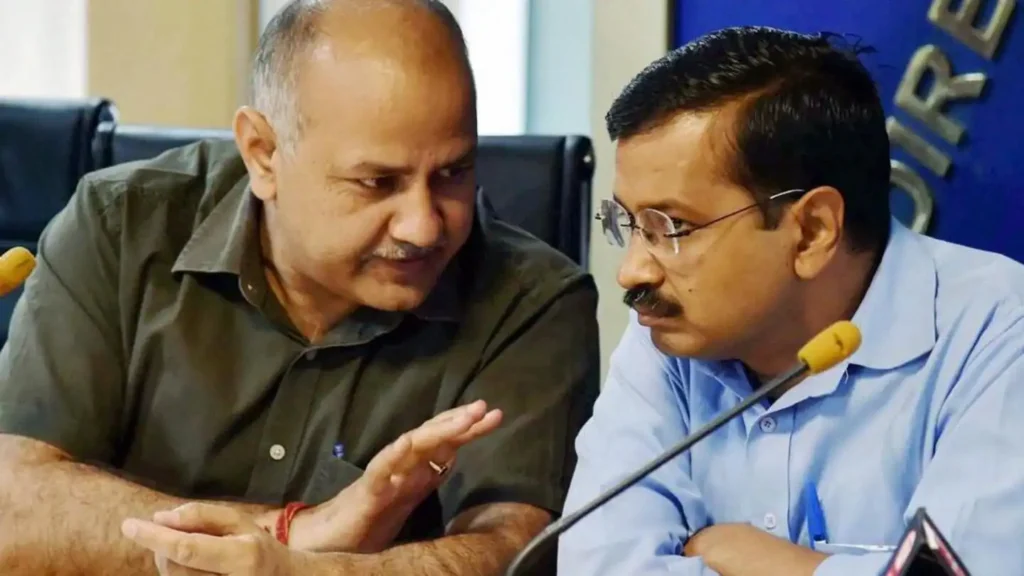
Arvind Kejriwal and the AAP got back together after he stepped down in 2014 and geared up for a bigger political comeback. There was a big change after the 2015 Delhi Legislative Assembly polls. The AAP won by a huge margin, getting 67 of the 70 seats, and on February 14, 2015, Kejriwal was sworn in as Chief Minister for a second time.
During Kejriwal’s second term, his government launched some important programs aimed at improving public services, healthcare, and education:
Reforms in Education: The Delhi government made significant investments to improve the level of education, build better infrastructure, and upgrade public schools. A lot of people liked the idea of “happiness classes” and reforms to the curriculum that were meant to help students grow in all aspects.
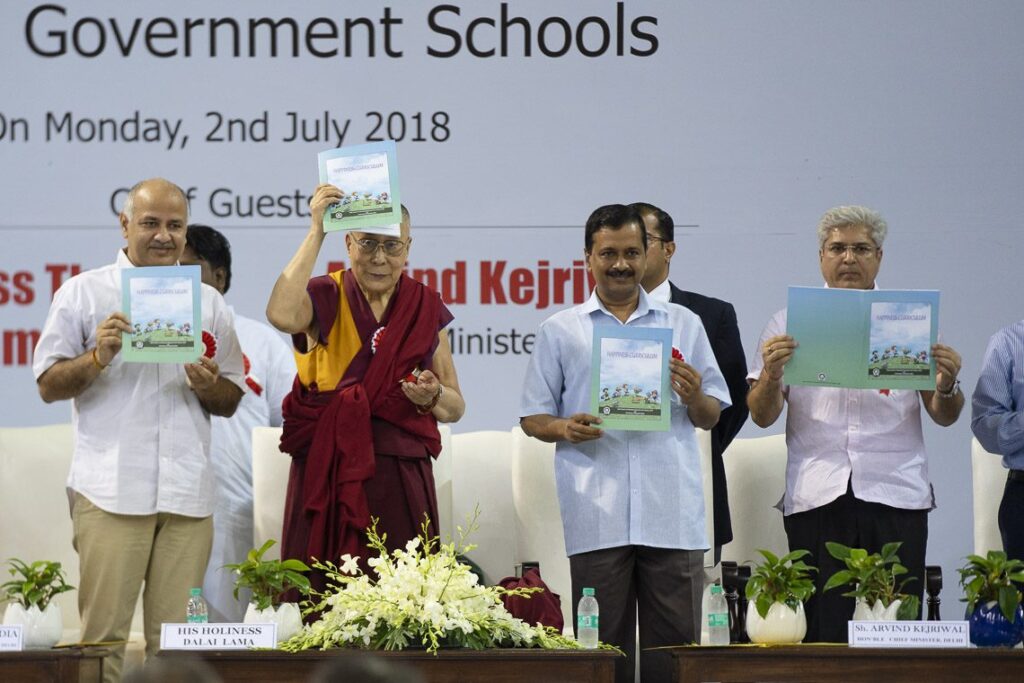
Health Care Initiatives: The Mohalla Clinics project, which Arvind Kejriwal’s government started gave free basic health care services to people in Delhi. The goal of the program was to make health care easier to get and more affordable, especially for poor people.
Public Services: Kejriwal’s government made it easier for people to get public services by starting the “Doorstep Delivery of Services” program. This program lets people get access to essential services from their homes.
Third Term and More Reforms:
The 2020 elections for the Delhi Legislative Assembly made Kejriwal’s political position even stronger. 62 of the 70 seats were won by the AAP. Kejriwal began his third term as Chief Minister on February 16, 2020. His government kept focusing on improving governance, public welfare, and building up infrastructure.
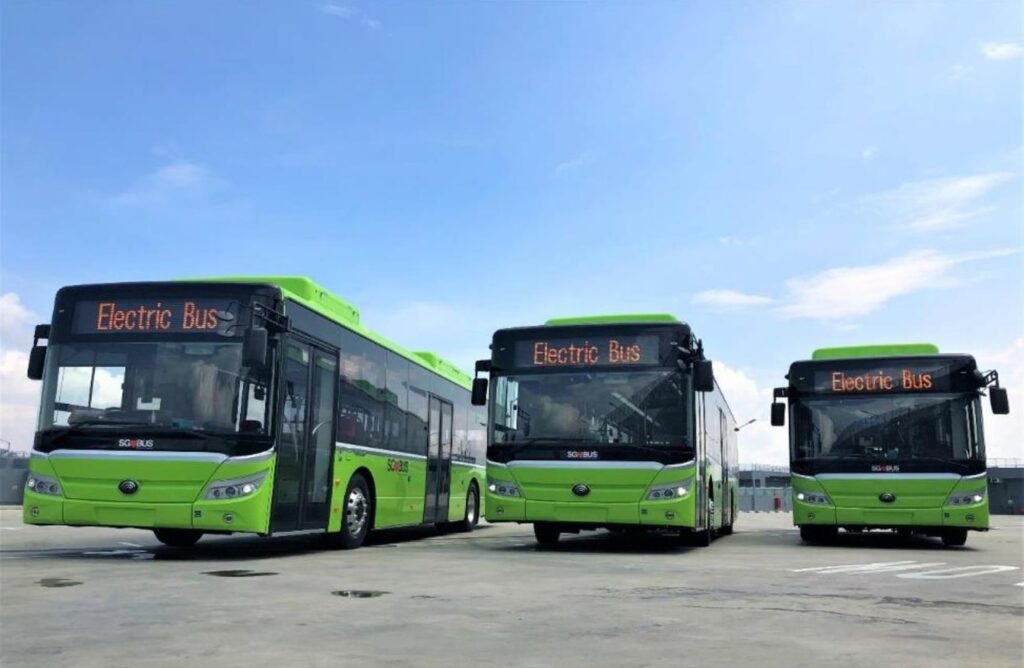
Infrastructure Development: Delhi’s public transportation got a lot better under Arvind Kejriwal’s leadership, with the Delhi Metro growing and electric buses coming on the scene. There were also efforts made to deal with pollution, through initiatives like the “odd-even” plan and installing the smog towers.
Programs for Social Welfare: The government increased its social welfare programs, such as giving women free bus rides and setting up community kitchens to feed the poor.

COVID-19 Response: Kejriwal’s government played an important role in handling the COVID-19 spread in Delhi. Some of the things that were done were improving healthcare facilities, helping families who had lost their jobs, and starting mass vaccination drives.
Lok Sabha Elections and National Ambitions:
Arvind Kejriwal and the AAP have tried many times to expand their political influence outside of Delhi. The Lok Sabha elections were their route to achieve national prominence.
2014 Elections for the Lok Sabha:
The 2014 general elections were AAP’s first time running for office at the national level. In the Varanasi district, Kejriwal ran against Narendra Modi, who was running for prime minister as a BJP candidate at the time. Kejriwal lost by a large margin, even though he ran an aggressive campaign that focused on corruption and problems with governance. The AAP only won four seats in the Lok Sabha, and all of them were in Punjab, which showed the challenges of expanding their political influence outside of Delhi.
2019 Elections for the Lok Sabha:
The AAP ran candidates in the 2019 Lok Sabha elections in Delhi, Punjab, Haryana, and Goa, among other states. The party kept focusing on issues like healthcare, education, and fighting corruption. But the results were disappointing. The AAP only won one seat in Punjab and none in Delhi.
Even though there were setbacks, Kejriwal didn’t give up. He kept working on the party’s organizational structure and grassroots presence in many states.
2024 Elections for the Lok Sabha:
Arvind Kejriwal and the AAP had to do well in the 2024 Lok Sabha elections if they wanted to become prominent on the national stage. During the time before the elections, the AAP worked to grow its presence in states such as Uttar Pradesh, Goa, Punjab, and Gujarat.
Punjab Victory: The AAP won 92 of the 117 seats in the Punjab Legislative Assembly in the 2022 elections, which was a historic win. This victory gave Kejriwal’s national ambitions a significant boost and showed that the AAP’s model of governance could work outside of Delhi.
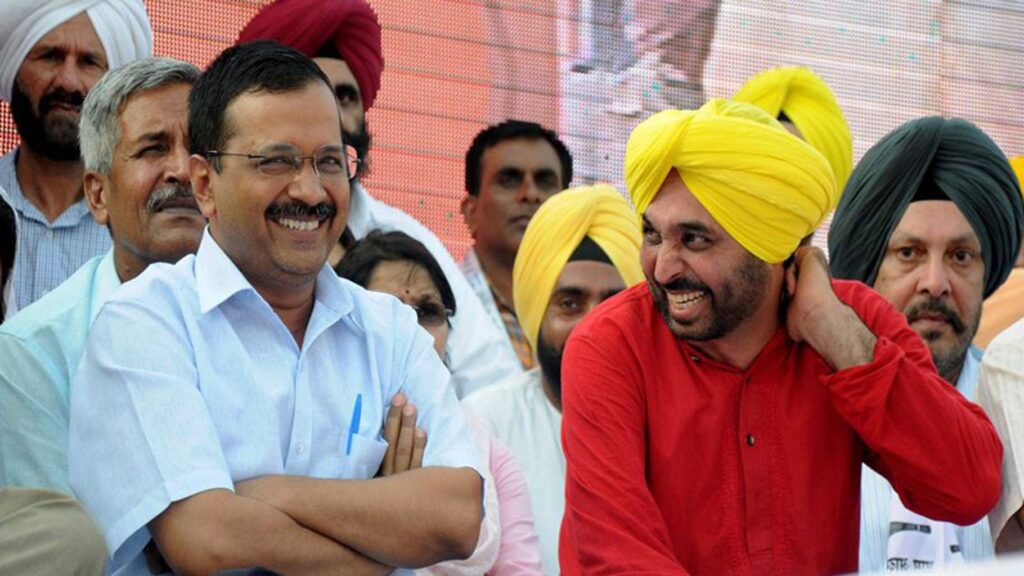
Strategic Alliances: Kejriwal had been looking into strategic partnerships with regional parties to get more people to vote against the BJP before the 2024 elections. Parties like the Trinamool Congress (TMC) and the Nationalist Congress Party (NCP) had been engaged to make a strong opposition coalition.
National Campaign Themes: The main focuses of the AAP’s national campaign for the 2024 elections were good governance, fighting corruption, better education and health care, and federalism. Arvind Kejriwal emphasized the importance of a transparent and accountable government that prioritizes the needs of the common man.
Election Campaign and Key Issues
The AAP’s campaign for the Lok Sabha elections in 2024 has been all about good governance and public welfare. Key issues that Kejriwal highlighted were:
Education and Healthcare: Kejriwal has promised to bring the successful education and healthcare models implemented in Delhi by his regime to the whole country. He is campaigning for more investment in public schools and healthcare services.
Anti-Corruption Measures: Staying true to his roots, Kejriwal has emphasized again his commitment to fighting corruption and implementing strong anti-corruption measures, such as creating a Lokpal at the national level.
Economic Policies: The AAP’s economic policies focus on promoting small and medium-sized enterprises (SMEs), creating job opportunities, and making sure that economic growth helps everyone. Arvind Kejriwal has stressed the importance of economic policies that help the common person, with a focus on reducing the gap between the rich and the poor.
Environmental Sustainability: Recognizing that environmental problems are gaining impetus, Kejriwal’s environmental sustainability campaign focused on improving air quality, promoting renewable energy, and implementing sustainable development processes. He has said that other parts of the country can learn from Delhi’s attempts to fight pollution.
Federalism and Decentralization: More decentralization of power and a stronger federal framework are two things that Kejriwal campaigned for. He emphasized giving more autonomy to state governments to deal with local issues effectively. He argued that the central government’s one-size-fits-all approach doesn’t always work for different regions.
Campaign Strategies and Public Engagement in Lok Sabha Elections 2024:
During the 2024 elections, Arvind Kejriwal’s campaign strategy was multifaceted, using both old and modern ways to connect with voters. Some important elements of the strategy were:
Grassroots Mobilization: The AAP has focused on building a strong grassroots network by running door-to-door campaigns and engaging with local communities. This strategy has helped the party build a loyal support base and deal with local problems directly.
Digital Campaigns: Kejriwal’s team knows how powerful social media and digital platforms can be, so they’ve used them to reach a broader audience. The party’s message has been spread a lot through online campaigns, live interactions, and digital town halls.
Public Rallies and Events: Arvind Kejriwal has held a lot of public events and rallies in many states to connect with voters and talk about the AAP’s plans for the country. This has helped him speak to large groups of people and get media attention.
Manifesto and Policy Promises: The AAP’s election manifesto was crafted to meet the concerns of several demographic groups such as farmers, young people, women, and the urban middle class. The manifesto outlines specific policy promises and doable plans, which shows the party’s commitment to delivering on its promises.
Challenges and Criticisms:
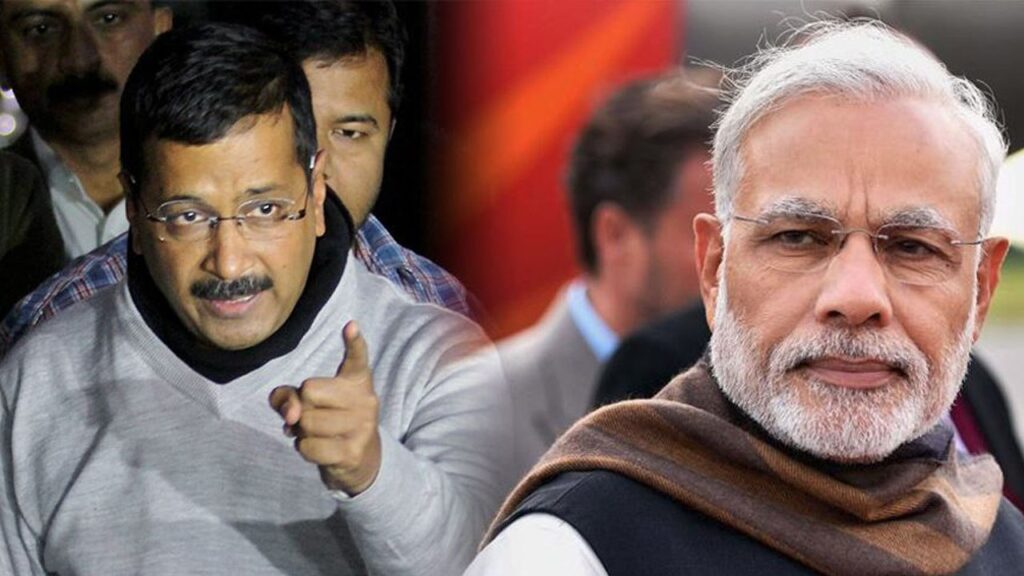
Even with a bold and ambitious campaign and strategic planning, Arvind Kejriwal and the AAP will have to deal with several challenges in the 2024 Lok Sabha elections:
Limited National Presence: The AAP has taken significant steps in places like Delhi and Punjab, but it still doesn’t have a lot of support across the country. Building a base across all of India takes a lot of time and money, and the party is still working on expanding its reach.
Political Opposition: The BJP and the Indian National Congress (INC) are still strong opponents. It is hard for newer parties like the AAP to fight on an equal footing with the BJP because it has a strong network and a lot of resources.
Internal Party Dynamics: Just like any other growing political party, the AAP has faced internal problems within its ranks, like leadership fights and ideological differences. For the party to keep a strong front in the elections, it is important to ensure unity and coherence in it.
Media and Perception: Opponents have used Kejriwal’s confrontational style and past controversies, like his resignation as Delhi’s Chief Minister during his first term, to question his leadership and stability. Overall, it is important to overcome negative perceptions and build a positive narrative.
Legacy and Future Prospects:
Arvind Kejriwal’s legacy continues to evolve, as he wants to make a significant impact in Indian politics and across the whole country. From being a social worker to a well-known political leader, he has several notable achievements and ongoing challenges.
Achievements:
Governance Reforms in Delhi: Kejriwal’s regime brought significant governance reforms that have been especially noticeable in education, health care, and public services.during his tenure as the Chief Minister of Delhi. These reforms have set examples for other states and shown what good governance can look like.
Initiatives Against Corruption: Kejriwal’s constant focus on anti-corruption measures has made people more aware of the need for transparency and accountability in public office. This has significantly resonated with voters tired of widespread corruption.
Public Engagement: The reason behind Arvind Kejriwal’s success is his ability to connect with the common man and address everyday issues. His focus on listening to citizens and addressing their problems has earned him a strong following of loyal supporters.
Challenges:
National Expansion: The AAP still has a long way to go before it expand its political influence outside of Delhi and Punjab. To have a national presence, you need to make strategic alliances, grassroots mobilization, and run effective campaigns across diverse regions.
Political Stability: For long-term success, it’s important to have political stability and unity within the party. Kejriwal’s leadership will be judged by his ability to manage internal dynamics and maintain a cohesive vision.
Dealing with Criticisms: It’s important to deal with criticisms related to governance style, policy decisions, and past controversies to build a positive and credible narrative. Kejriwal needs to address these issues in a better way if he wants to reach out to wider audience and gain their support.
What the Future Holds for Arvind Kejriwal ?
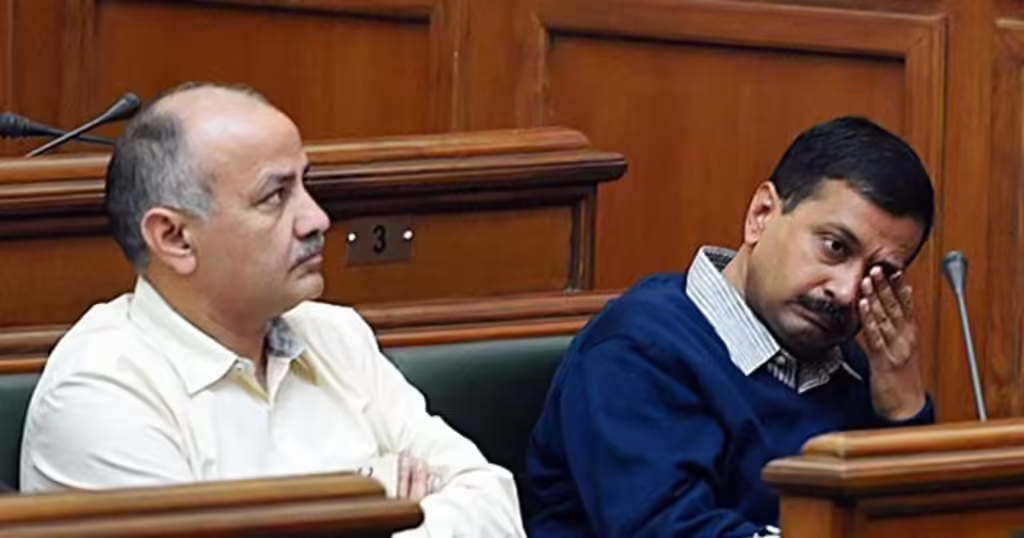
As the Lok Sabha elections of 2024 get closer, Arvind Kejriwal’s future in Indian politics depends on how well the AAP does and how well it can connect with a broader electorate. Some important things that will affect his future legacy are:
Performance in Key States: The AAP’s national goals will depend on how well it does in key states like Punjab, Gujarat, and Uttar Pradesh. Strong performances in these states can generate the momentum needed to bring about a larger national impact.
Building Coalitions: To challenge the BJP’s power, it is important to make strategic alliances with regional parties and other opposition groups. Building coalitions will enhance the AAP’s chances of winning the election.
Policy Implementation: Delivering its policy promises and shows tangible results in governance is what will improve AAP’s credibility. It is important to implement economic strategies, social welfare programs, and infrastructure projects effectively in this endeavor.
Public Perception: Kejriwal’s future success highly depends upon on communication and media engagement. It is important to deliver a positive narrative about his leadership and the AAP’s achievements.
Conclusion:
From a small town in Haryana to being the Chief Minister of Delhi and a major figure in Indian politics, Arvind Kejriwal’s story is one of unwavering determination, resilience, and a relentless pursuit of reform. His leadership has led to significant improvements in governance, education, health care, and anti-corruption measures.
As Kejriwal and the AAP gear up for the 2024 Lok Sabha elections, it is important for them to focus on growing their national presence and addressing important issues. Building a pan-India base, establishing strategic alliances, and overcoming criticism are challenges that will test Kejriwal’s leadership and the party’s resilience.
As Arvind Kejriwal works his way through the complicated world of Indian politics, his legacy as a reformer and leader of the common man will continue to grow. His dedication to public service and his ambition for a transparent, accountable, and inclusive government will determine his contributions to India’s politics in the years to come.

